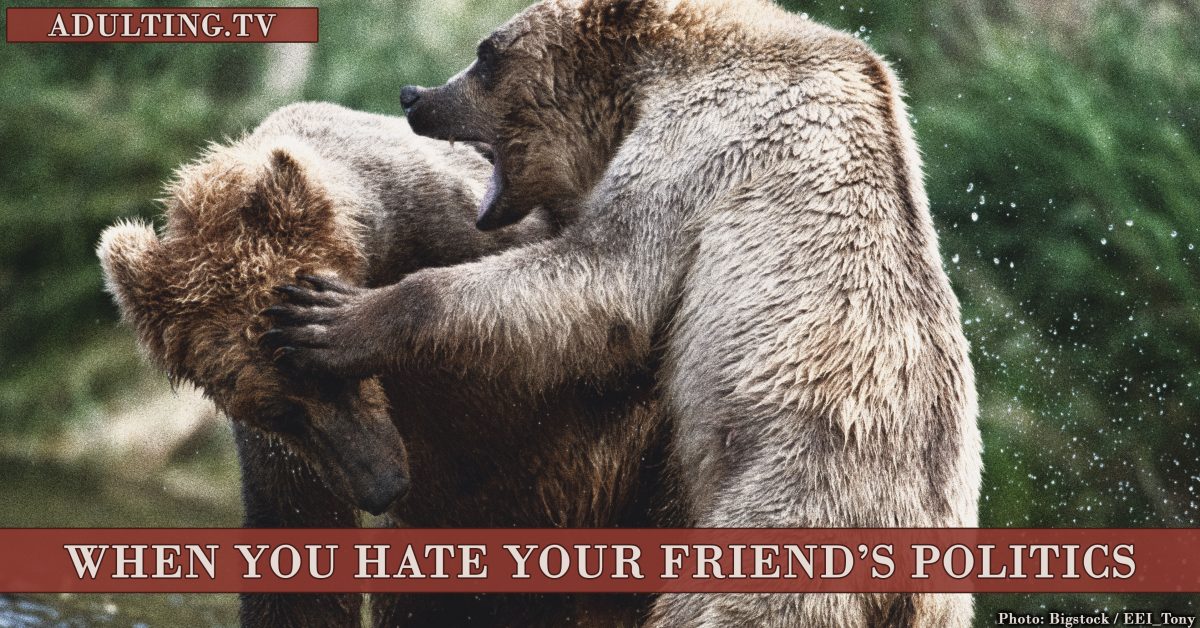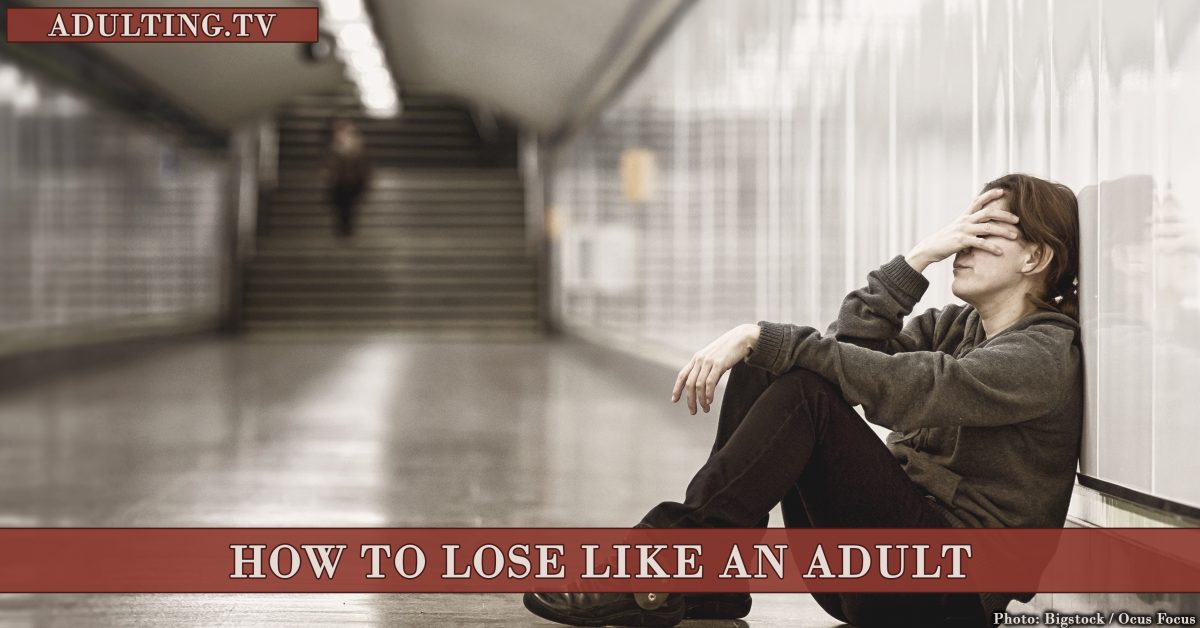When it comes to friendships, diversity makes all the difference.
It’s important to have things in common, but most solid relationships are built upon a foundation of complementary contrasts.
But as possible as it is for Yankees and Red Sox fans to be friends, some differences are harder to reconcile. When a friend or loved one holds an opinion that suggests a fundamentally different view of the world from your own, it can be painful and confusing.
You guessed it: I’m talking about politics.
Political views don’t define a person, but it’s easy to think that way in the wake of a challenging and polarizing political season.
Once you develop a negative opinion of someone based on their politics, it’s no easy task to scrub that feeling away – even if it’s an old friendship with lots of great memories.
If you want to preserve a healthy friendship or save a sinking one, here are some tips for when your politics and your friend’s politics just don’t match.
If you want to stay quiet.
During this past election, I was shocked at how differently some of my friends felt about who should be president.
I was so disappointed to think that someone I trust and care about could have such a fundamentally different view of the world. Sometimes loitered around Twitter and Facebook pages to see what they were posting, even when I didn’t plan on writing a response. I just wanted to follow my friends’ political discussions.
Eventually, I realized that if I wasn’t going to disagree with them publicly, it was pathetic to resentfully stalk their accounts. What I’d find would only disappoint and anger me. It can be so addicting to read comments and posts from people you disagree with, but unless you want to speak up it will only hurt your friendship.
If you believe that friendship and politics don’t mix, here are some strategies on staying sane for the next four years:
- Block them on social media. Unless you see someone regularly, social media is the best way to stay in touch with them. It’s also the easiest way to find reasons to hate them. Unfollowing them on Facebook or Twitter can make it easier to maintain the friendship, especially if they’re particularly vocal about politics.
- Install a browser extension. People began complaining about too much political content on social media during the presidential election. Now, developers have responded with browser extensions that scrub your news feeds of anything political. They’re not foolproof, but they can minimize how many political posts you see.
- Talk to them personally. Asking your friend not to mention politics via text, email or social media is hard, but asking them in person is much easier. Tone is misunderstood less often when people are face to face or on the phone with each other.
If you want to speak up.
Of course, not all of us can or even want to stay quiet. Maybe you feel passionately about an issue. Whether you are disagreeing with your parents, other relatives, or friends, it’s important to be careful as you move forward.
Here are some suggestions on how to disagree with a friend’s politics without offending or upsetting them:
- Seek to understand, not convince. Author Jason Vitug of You Only Live Once said in the last year he’s been surprised at how many loved ones he disagrees with on politics. Instead of ignoring what they say or arguing with them, Vitug tries to understand how they came to that conclusion and asks them why they believe what they do. Doing so has made him more compassionate and less dismissive. “I’ve learned for the most part that all of us want the best, but how we get there will differ,” Vitug said.
- Find common ground. The differences between your mother-in-law’s politics and your own can seem like an irreparable gulf. Instead of focusing on what you disagree with, find opinions you have in common. The less you see someone as an enemy, the easier it will be to stay friends.
- Learn their stories. Like Vitug, writer Julie Rains of Investing to Thrive said she asks people their reasons for holding a certain opinion. She often finds that their background informs their opinions more than she realized. She said it makes it easier to see their point of view after finding out what their stories are.
- Avoid name-calling. Disagreeing about your friend’s politics is like arguing about any other topic. Once you start name-calling, a friendly disagreement can quickly turn ugly. No matter how heated the discussion gets, try to keep your cool. The more respectful you are, the better the chance for your message to get through – and for your friendship to survive.
- Send a private message. Disagreeing on social media can turn sour quickly, especially when emotions are inflamed. The public nature of the medium can make that worse, allowing for strong opinions to pile up and aggravate everyone involved. If you’re tired of fuming quietly, consider reaching out to your friend privately. You’ll be able to work out your differences on a more personal level, rather than duking it out in front of all your followers.
It’s been a bruising political season, and things aren’t getting any easier for many of us. We need to view our friends’ politics like adults, and work to keep conversations civil.



![[A046] Big Mucky Muck: Get Involved in Local Politics](https://adulting.tv/wp-content/uploads/2016/11/a046-1-1200x628.jpg)
